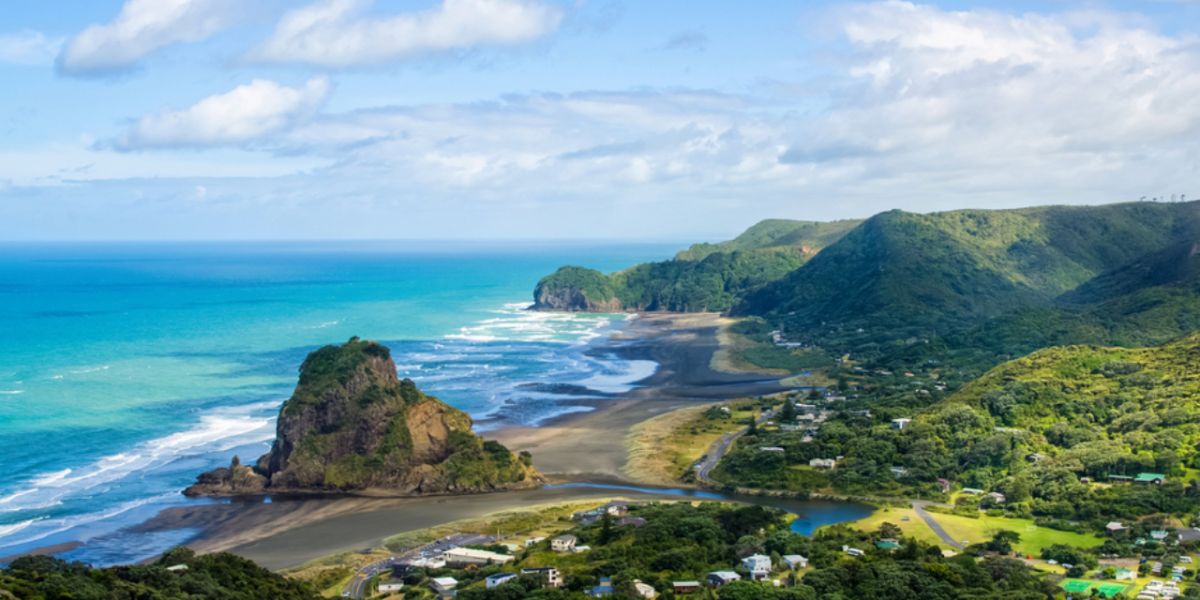
New Zealand is a great place for further studies, whether you are looking to attend a university, polytechnic or vocational school, learn English, or study as a foreign exchange student. Before you move to New Zealand, you will need to research where you would like to study and decide what will be best for you.
If you are already attending university in your home country, have a chat with the personnel at your university. They may advise you in case they have exchange programs set up with New Zealand universities. A good place to look is on the ‘Study in New Zealand' page on the government's website.
Enrolling in New Zealand universities
To enroll at a university in New Zealand as an expat, you will need to follow these steps:
- Research the universities and programs that you are interested in and ensure that they meet your academic and career goals.
- Check the university's international student enrollment requirements, which may include proof of English proficiency, previous educational qualifications, and financial documentation.
- Submit your application to the university along with the required documents.
- If your application is accepted, the university will provide you with an offer of enrollment and information about the next steps, including visa application and tuition fee payment.
- Once you have completed all the necessary paperwork, including obtaining a student visa, you can then arrange for your travel and accommodation in New Zealand.
It's important to note that the process may vary depending on the university and country of origin, so it's a good idea to contact the university directly to get more specific information.
Good to know:
If you are studying for less than three months, you won't need a visa. For anything longer than three months, you will need a visa. To apply for a visa to New Zealand, you will need to enroll in a course at a school or institution that is registered with the New Zealand Qualifications Authority.
Applying for a student visa in New Zealand
To apply for a student visa, you will need to send through the following:
- Your 'offer of place' from a registered New Zealand Qualifications Authority institution
- If you are under 18, a written confirmation from either the school or an authorized person that accommodation is available for you in New Zealand
- Proof of sufficient funds to support yourself for the duration of your course
- A return flight ticket or proof of funds to purchase one
- You will also need to pay a visa application fee.
- A valid passport
- A police certificate (if required)
- A Medical and/or x-ray certificate (if required)
- Any other documentation required by the visa officer
As ever, it is advisable to check the official immigration website of New Zealand for the most up-to-date information and for the specific requirements for your country of residence. Additionally, you will want to make sure that your visa application is complete and accurate, as incomplete or inaccurate applications may be delayed or denied.
The processing time for a student visa in New Zealand can vary depending on a number of factors, including the country you are applying from, the time of year, and the complexity of your application. Generally, it can take anywhere from a few weeks to several months for a student visa to be approved. Processing times can be longer during peak periods, such as the start of the academic year.
That being said, many student visa applications are approved within 25 working days. As long as you are enrolled in a full-time course, your student visa also allows you to work 20 hours a week during the school term and full-time during school holidays. There are also postgraduate visa options available for those who want to remain in New Zealand upon graduating.
Being an international student in New Zealand
As an international student in New Zealand, there are a few things you should be aware of:
- Visa requirements. As indicated above, you will need to have a valid student visa in order to study in New Zealand. Make sure to apply for your visa well in advance of your planned arrival date.
- Cost of living: New Zealand can be an expensive country to live in, especially in larger cities like Auckland and Wellington. Make sure to budget accordingly for expenses such as rent, food, and transportation.
- Insurance: Make sure you have adequate health insurance coverage for the duration of your stay in New Zealand. You may also want to consider purchasing travel insurance.
- Cultural differences: New Zealand has a unique culture that is different from many other countries. Be prepared to adapt to different customs and social norms. Depending on your subject or location, there may be aspects of Māori culture that you will engage with. Do some research in advance and consider enrolling in some Māori language or tikanga courses.
- Weather: New Zealand's weather can be unpredictable, so be sure to pack clothing suitable for different climates and seasons. Be prepared for a colder climate on the South Island and a milder one on the North Island.
- Language: Although English is widely spoken in New Zealand, it's good to be aware that there are Māori words and phrases that are commonly used.
- Safety: New Zealand is generally a safe place to live and study, but as in any country, it's important to be aware of your surroundings and take precautions to stay safe.
- Support Services: Most of the polytechs and Universities in New Zealand have International Student Support services to help you with any issues you may encounter during your studies.
Universities in New Zealand
New Zealand has eight universities, all with different programs, reputations, and campus cultures. Do some research and find out which one best suits your study interests and ambitions.
University of Auckland
Known for its strong business, law, and engineering programs, as well as its medical school, the University of Auckland is the largest university in New Zealand and has a reputation for academic excellence. It offers a diverse range of programs and has a vibrant student culture with various clubs and societies. Our Studying in Auckland article contains more detailed information about student life in the big city.
- Business, Engineering, Law, Medicine, Sciences, Creative Arts and Industries, and more.
- Application process: Applications are submitted online through the university's website, and admission requirements and deadlines vary depending on the program and level of study.
- Tuition fees: Tuition fees vary depending on the program and level of study. For domestic students, annual tuition fees range from NZ$ 6,000 to NZ$ 10,000, while for international students, fees range from NZ$ 32,000 to NZ$D 46,000.
University of Otago
Famous for its strong medical and science programs, as well as its prestigious law school, Otago is the oldest university in New Zealand and has a long history of academic excellence. It has a beautiful campus located in the city of Dunedin and has a strong sense of tradition and community.
- Medicine, Health Sciences, Sciences, Humanities, Business, Law, and more.
- Application process: Applications are submitted online through the university's website, and admission requirements and deadlines vary depending on the program and level of study.
- Tuition fees: Tuition fees vary depending on the program and level of study. For domestic students, annual tuition fees range from NZ$ 6,000 to NZ$ 10,000, while for international students, fees range from NZ$ 28,000 to NZ$ 46,000.
Victoria University of Wellington
With strong programs in law, humanities, and social sciences, VUW has a reputation for being a great choice for those interested in the arts. It's located in the country's capital city, Wellington, and is known for its lively student culture, creative writing program, and proximity to government and policy organizations.
- Law, Humanities and Social Sciences, Science, Business, Architecture and Design, and more.
- Application process: Applications are submitted online through the university's website, and admission requirements and deadlines vary depending on the program and level of study.
- Tuition fees: Tuition fees vary depending on the program and level of study. For domestic students, annual tuition fees range from NZ$ 6,000 to NZ$ 10,000, while for international students, fees range from NZ$ 27,000 to NZ$ 47,000.
University of Canterbury
Known for its strong engineering and science programs, as well as its business school, the University of Canterbury has a reputation for academic excellence, and its engineering program is particularly well-regarded. Check out our Studying in Christchurch article for more information. Below are the key features of this university:
- Engineering, Science, Business, Law, Humanities and Social Sciences programs, and more.
- Application process: Applications are submitted online through the university's website, and admission requirements and deadlines vary depending on the program and level of study.
- Tuition fees: Tuition fees vary depending on the program and level of study. For domestic students, annual tuition fees range from NZ$ 6,000 to NZ$ 10,000, while for international students, fees range from NZ$ 30,000 to NZ$ 44,000.
Massey University
Boasting strong programs in agriculture, business, and design, Massey is well-regarded internationally and is connected with several highly regarded research centers. It has a strong focus on practical, hands-on learning, and its veterinary and agriculture programs are particularly well-regarded. Below are the key features of this university:
- Agriculture and Environment, Business, Creative Arts, Health and Social Services, Humanities and Social Sciences, Sciences programs, and more.
- Application process: Applications are submitted online through the university's website, and admission requirements and deadlines vary depending on the program and level of study.
- Tuition fees: Tuition fees vary depending on the program and level of study. For domestic students, annual tuition fees range from NZ$ 6,000 to NZ$ 10,000, while for international students, fees range from NZ$ 25,000 to NZ$ 37,000.
University of Waikato
Management, education, and computer science are among the programs that Waikato is known for. Waikato also has a growing reputation as a research-led institution and its management program is particularly well-regarded. Below are the key features of this university:
- Business, Computing and Mathematical Sciences, Education, Engineering, Health, Law, Social Sciences programs, and more.
- Application process: Applications are submitted online through the university's website, and admission requirements and deadlines vary depending on the program and level of study.
- Tuition fees: Tuition fees vary depending on the program and level of study. For domestic students, annual tuition fees range from NZ$ 6,000 to NZ$ 10,000, while for international students, fees range from NZ$ 29,000 to NZ$ 38,000.
Lincoln University
Lincoln is famous for its strong programs in agriculture, horticulture, and environmental science. A world leader in terms of agriculture, Lincoln is home to several well-renowned research centers. It is the smallest university on this list, but it offers a unique, small-town feel and a strong sense of community. Below are the key features of this university:
- Lincoln University specializes in agriculture, environmental, and land-based sciences, as well as business, tourism, and social sciences. Offers a range of undergraduate and postgraduate programs across faculties, including Agribusiness and Food, Environment, Society and Design, and Commerce.
- Application process: Applications are submitted online through the university's website, and admission requirements and deadlines vary depending on the program and level of study.
- Tuition fees: Tuition fees vary depending on the program and level of study. For domestic students, annual tuition fees range from NZ$ 7,300 to NZ$ 8,600, while for international students, fees range from NZ$ 29,000 to NZ$ 34,000.
Auckland University of Technology
Known for its strong programs in business, design, and technology, AUT is the newest university on this list and has a focus on hands-on learning, industry-relevant education and a diverse student population. Below are the key features of this university:
- Business, Design and Creative Technologies, Health and Environmental Sciences, and Culture and Society. It is known for its innovative and industry-focused programs and has a strong reputation in the areas of design, communication, and health sciences.
- Application process: Applications are submitted online through the university's website, and admission requirements and deadlines vary depending on the program and level of study.
- Tuition fees: Tuition fees vary depending on the program and level of study. For domestic students, annual tuition fees range from NZ$ 6,800 to NZ$ 8,000, while for international students, fees range from NZ$ 29,000 to NZ$ 38,000.
Polytechnics in New Zealand
Polytechnics in New Zealand offer vocational education and training (VET) in a wide range of disciplines, including engineering, business, IT, creative arts, and health. They typically have a strong focus on hands-on, practical learning and offer a wide range of diploma, certificate, and degree-level programs.
In contrast, universities in New Zealand offer more traditional academic programs, such as arts, humanities, and sciences. They typically have a stronger focus on theoretical and research-based learning and offer undergraduate and postgraduate degrees.
One key difference between polytechnics and universities is that polytechnics have a stronger focus on vocational training and preparing students for specific careers, while universities have a stronger focus on providing a broad-based education and developing research and critical thinking skills. Additionally, polytechnics tend to have smaller class sizes and more opportunities for students to work on projects with industry partners. Below are the most prominent Polytechnics in New Zealand:
- Auckland University of Technology (AUT) is located in Auckland and offers a wide range of programs in technology, design, business, and other fields.
- Unitec Institute of Technology is located in Auckland and offers programs in areas such as engineering, construction, health, and social services.
- Waikato Institute of Technology (WINTEC) is located in Hamilton and offers programs in technology, business, creative arts, and other fields.
- Eastern Institute of Technology (EIT) is located in Hawke's Bay and offers programs in technology, engineering, business, and other fields.
- Otago Polytechnic is located in Dunedin and offers programs in technology, design, business, and other fields.
- Christchurch Polytechnic Institute of Technology (CPIT) is located in Christchurch and offers programs in technology, engineering, business, and other fields.
- Nelson Marlborough Institute of Technology (NMIT) is located in Nelson and offers programs in technology, engineering, business, and other fields.
- Southern Institute of Technology (SIT) is located in Invercargill and offers programs in technology, engineering, business, and other fields.
After your studies in New Zealand
After you have completed your studies in New Zealand, there are several visa options that may allow you to remain in the country, the most common being:
Post-Study Work Visa: This is a temporary visa that allows international students who have graduated from a New Zealand institution to work in the country for a specified period of time. The length of time you can stay on this visa will depend on the level of your qualification.
Skilled Migrant Category: This is a permanent residence visa that allows individuals with specific skills and qualifications to live and work in New Zealand. To be eligible for this visa, you will need to meet certain criteria, such as having a job offer from a New Zealand employer and passing a points-based assessment.
Working Holiday Visa: This is a temporary visa that allows individuals aged between 18 and 30 to live and work in New Zealand for up to 12 months. This visa is only available for certain countries, and you will need to meet certain criteria to be eligible.
As always, check the official New Zealand immigration website to get the most up-to-date information and to find the best option for you.
We do our best to provide accurate and up to date information. However, if you have noticed any inaccuracies in this article, please let us know in the comments section below.








